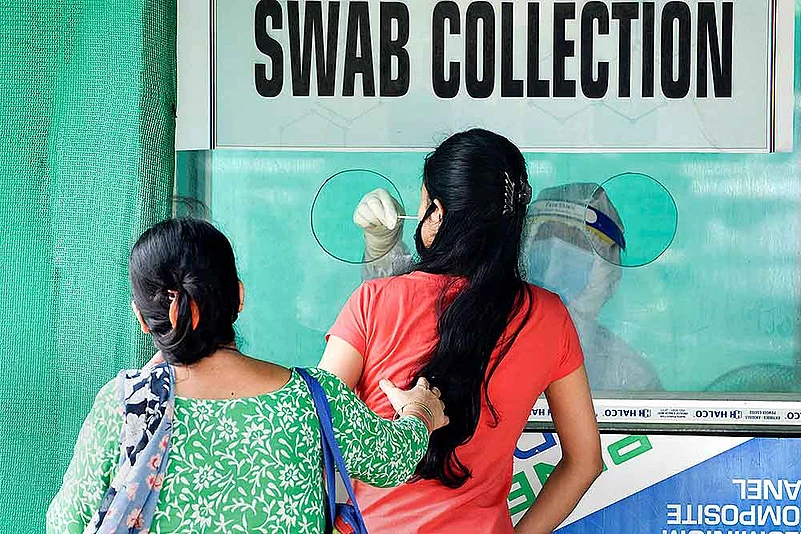Despite all the claims by government of ramping up manufacturing of testing equipment and setting up infrastructure in the past four months, even today, a Covid-19 suspect cannot walk into a private or government laboratory and get himself/herself tested.
Indian Council of Medical Research (ICMR) says an individual needs a doctor’s prescription for a RT-PCR test. “So even if you are ready to bear the cost but you don’t have a qualified physician’s prescription, laboratories authorised to conduct Covid-19 test will not entertain you,” said Ashok Agarwal, lawyer and activist, adding that it is the duty of the government to ensure that any person who wants to get tested should have access to that.
Advertisement
According to the Ministry of Health and Family Welfare, ICMR has so far approved 1,056 laboratories for COVID-19 testing. Of these, 764 are in the public sector and 292 are private labs.
Currently, there are three approved technologies for conducting the confirmatory test for COVID 19 -- TruNAT, GeneXpert (CBNAAT), and RT PCR test. Both TruNAT and GeneXpert incur high costs and the price per test is expensive.
While government laboratories conduct tests free of cost, private labs charge between Rs 2,000 to Rs 2,400, depending on the price fixed by the state government.
A section of experts feel that when no other diagnostic test requires any doctor’s recommendation, why has the government imposed this restriction on Covid-19 test. They argue that every citizen has a fundamental right to get himself/herself tested and denying it can endanger a citizen’s life.
Advertisement
“The requirement of prescription should be done away with, in the interest of every citizen. This will definitely help in reducing the anxiety, save precious lives and contain the virus,” said Dr Ravi Gaur, Member, FICCI Health Services Committee and COO, Oncquest Labs.
Dr Rajni Kant, Director, ICMR-Regional Medical Research Centre (RMRC), Gorakhpur said that ICMR is scaling up the testing facilities in the country.
“In days to come, we will have the facilities for testing anybody anywhere,” said Dr Kant, who has an additional charge as Head, Division of Research Management, Policy, Planning and Coordination (RMPPC) at ICMR Headquarters.
Many experts feel that if the government does away with the restriction of doctor’s recommendation, many people, who don’t need the test, will get themselves tested out of panic. This will exhaust the resources and needy ones will suffer.
Ameera Shah, Promoter and Managing Director, Metropolis Healthcare, said, “The reason why the ICMR has laid certain guidelines for testing is to avoid any panic among the public. The guidelines laid by ICMR were fair and anyone at risk and with symptoms could get tested with a doctor’s prescription.”
Arindam Haldar, CEO, SRL Diagnostics, said, “One needs to understand that for a country of 1.3 billion people, practically it's not possible for the Indian Government to test the entire population.”
Advertisement
Lab experts also say that despite having over 1,000 labs approved for testing across India, there has been no proper demand forecasting done by the governments, because of which labs have not been able to scale up testing capacity in a big way. Additionally, there have been deviations from the ICMR guidelines in a few states, they allege.
“If you take the example of Mumbai or even Telangana, in all of April and May, asymptomatic or high-risk contact testing was not allowed. This has led to severe under-testing and test positivity rate remains very high at 25% compared to other hotspots,” Shah said.
Advertisement
“There should have been one unified goal with a clear action plan and the public and private sectors should have worked together as partners. There is no substitute for testing. The more you test, the more cases can be identified, isolated, and treated. This is the only known way to combat this pandemic,” she added.




















